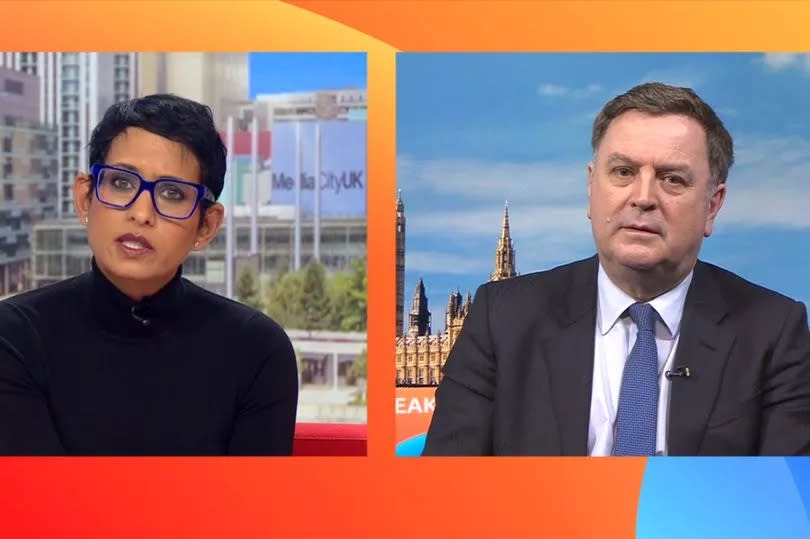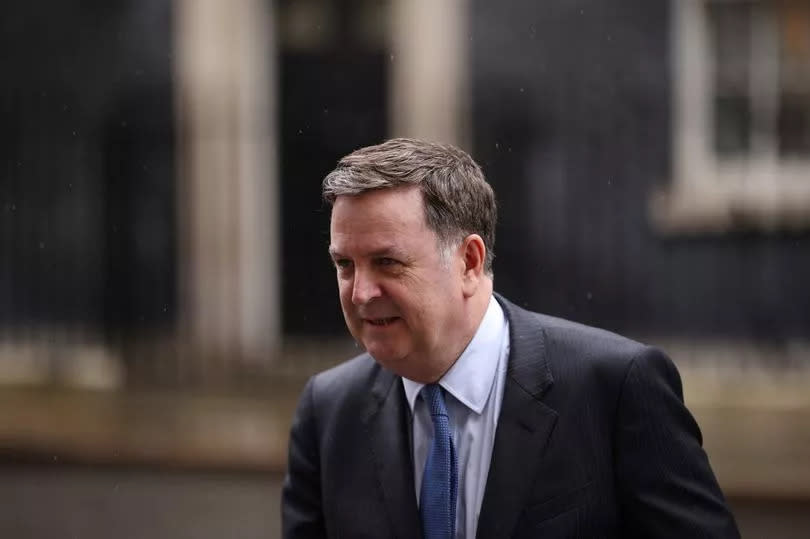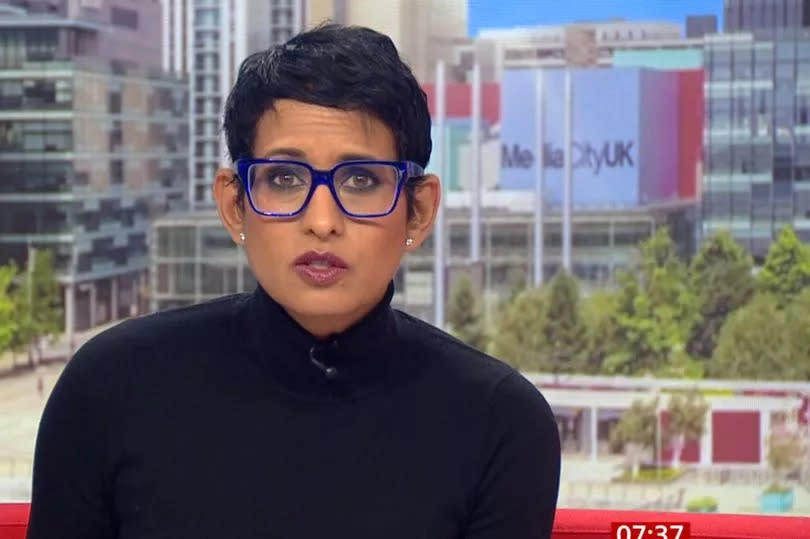BBC Breakfast's Naga Munchetty clashes with DWP boss over 'sick note culture'

Work and Pensions Secretary Mel Stride and BBC Breakfast presenter Naga Munchetty clashed during a live broadcast this morning as the government announced a new crackdown on a rising "sick note culture", with almost 3 million Brits now signed off from work due to ill health.
Naga pressed the Department for Work and Pensions (DWP) boss repeatedly on the government's plan to have sick notes signed off by healthcare professionals, rather than GPs - amid a one-third rise in working-age sickness since 2020.
In the interview, it emerged that the changes that could remove payments from up to 250,000 people were likely to come in the autumn, when pharmacists, as-of-yet undefined healthcare professionals and work coaches will start to decide whether someone is fit to work.
READ MORE: Warning over Child Benefit mistake that could cost families £6,500 in retirement
Naga asked the Work and Pensions Secretary, "What is sick note culture in the UK?", to which he responded by raising the 2.8 million people on sickness benefits and the 94 per cent of the 11 million sick notes issued by GPs last year that declared a person unfit to work.
Mel Stride MP said: "We want to move, and I want to move, to a situation where we are able to provide not just the healthcare support that the individual may need but also that work-based advice and support. That is about keeping people in the workforce rather than drifting out of the workforce and further away from it."

He went on to finish by confirming when the government hopes to make the changes, saying: "The fit note reforms, which are going to be rolled out starting in the autumn across substantial areas of the country, will be a really important part of that process."
Naga followed up by asking if those GPs were wrong to issue a sick note, telling Mr Stride: "94 per cent have been signed off by a GP, do you think fewer than 94 per cent should have been signed off by GPs?"
The minister started, faltering, to say "I think many more people, with the right support..." but the BBC Breakfast presenter pressed him, saying: "No, no, no, sorry that's not my question.
"My question is, because the point is that you are going to ask for other medical professionals, pharmacists for example, to assess people for sick notes. Do you think of those 94 per cent of people that were signed off, who asked to be signed off, do you think that there should have been some that weren't?"
The DWP boss replied: "I think I did answer your question, and I started to say, yes, I think there are far more people currently being signed off – 11 million sick notes per year – who, with the right support, that we are going to be standing up through something called Work Well..."
But Naga interrupted him to say: "No I'm sorry you are not answering my question, you are telling me about how you would like to encourage or help people who have been signed off to avoid being signed off. What I am asking is, of the 94 per cent who were signed off by GPs, do you think, of those, some of those should not have been signed off?"

To which the minister curtly replied: "Well I have already said yes, it is a one word answer, yes, I've said that now three times." But Naga continued to press him on why GPs were no longer to be the ones who decide if someone is fit to work, saying: "You don't believe that the GPs should have signed those people off, therefore the GPs are not doing their jobs?"
The DWP boss spoke at length about how "GPs are doing a fantastic job" but said that he wanted to bring "work support into the conversation" around sick notes, and that the approach to employment for the long-term sick should be more "holistic".
Naga followed up by asking: "So pharmacists are one of the healthcare professionals who could be signing people off, are they more holistic? Do they have a more holistic approach to GPs?"
Mel Stride responded "Well no, they are perfectly qualified to do that but as I say it's the same point, which is that the bit that's missing, whether it is the GP signing off a sick note or it's the pharmacist or others, it's the work related element.
"So if you go to a GP currently and you say you are feeling depressed etc and you get signed off...typically there's often not an element of that conversation in which there's a work coach involved saying 'well look let's look at the medical aspect of your situation but lets equally look at your work situation.'
"We've got a choice here, you can either leave work and get more distant from the workplace or we can work with your employer we can give you support we can keep you at work and benefitting from work and that's what I want to see more of."
The morning show presenter asked: "You want GPs to help manage people in their workplace?" But the minister refuted the question, saying: "No, I didn't say that.
"What I said was that I want a system where we have medical professionals who look after those medical parts or the healthcare part of the needs of the individual but we also bring in work coaches who are able to work with that individual to try and ensure that they stay in work, rather than drifting further and further away from the workplace.
"Because we believe that that is good for people and, in the case of mental health, there's plenty of evidence that those that are in work and stay in work have better outcomes than those that don't."
There was a brief silence before Naga asked the secretary of state: "Do you believe that you respect mental health problems?"
He replied: "Yes I do, and I am on the public record as very clearly saying that I think the fact that, as a society, we have developed such that we are able to talk about mental health in a much more open way is very significant and I think that that means that many people who in the past sadly would have suffered in silence, are now getting the support and the treatment that they need and I think that's extremely important."

 Yahoo News
Yahoo News 
